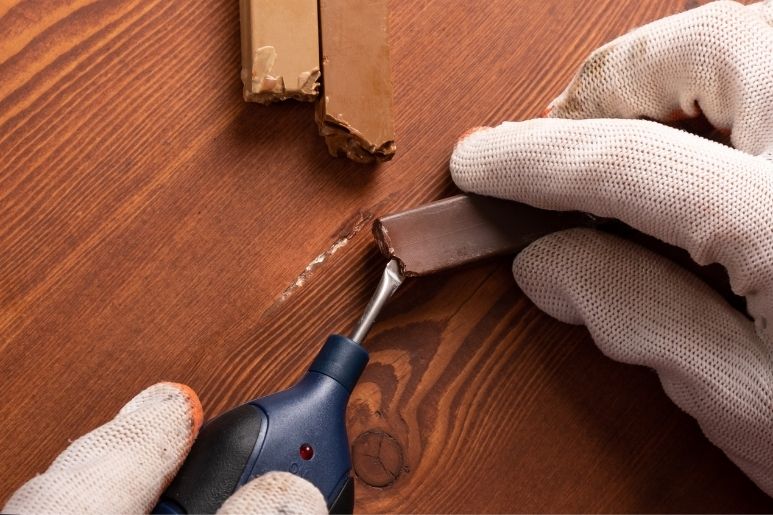
Ways People Accidentally Ruin Their Countertops
Installing new countertops is a great way to increase the value of your home and help make your space look more modern. Depending on the type of material you choose for your countertops, however, they are also a big investment, as certain material choices are not cheap. If you recently installed new counters or are shopping around for new ones, you should know these ways people accidentally ruin their countertops before you start using them.
Granite and Other Stone
Stone is a great countertop choice for any modern home due to its durability and strength, but it’s not indestructible. Granite, quartz, and other natural stone countertops are not a cheap investment, so it is important to take proper care of them. However, some of the care instructions and cautions for these stone features are not as well-known as others. Here are a few ways you might accidentally damage your granite or other stone counters.
Leaving Stone Unsealed
Leaving stone countertops unsealed is one of the biggest mistakes a new buyer can make. Some types of granite don’t require sealing before use, but most sellers will still recommend it. When they go unsealed, granite and stone are more vulnerable to stains, cracks, and other damage. For example, even a simple splash of water could quickly soak into the porous surface of an unsealed stone counter. You can stop stains from occurring in the same manner. Sealing your natural stone countertops will also prevent the spread of bacteria and cross-contamination from foods that meet your counters. Make sure to keep up with the sealing process, too, and reseal when necessary.
Using the Wrong Cleaning Products
You may wonder how cleaning your countertops is a bad thing. But using the wrong cleaning supply on your stone countertops could do them more harm than good. Using traditional multi-purpose cleaning sprays or bleach on your granite countertops could cause discoloration, stains, or dull the finish. Your best bet is to stick with the cleaning solutions sold or recommended by your granite supplier. If you can’t find a stone or granite-specific cleaning solution, a simple mixture of dish soap and warm water should do the job. This mixture is effective enough to kill germs yet not harsh enough to damage the granite or sealant.
General Countertops
Granite and other stone countertops are not the only styles that are vulnerable to damages. There are many other examples of modern countertop choices, and none of them are indestructible. Tile, laminate, wood butcher block, and even concrete are all types of other contemporary counter options. Concrete is by far the strongest, but even it will have its weaknesses. Here are some conditions that may harm these more general countertop examples, although you’ll also want to use caution around stone and granite as well.
Not Wiping Up Spills
Like granite and other stone countertops, spills can ruin many kitchen or bathroom surfaces. When you splash water, juice, or anything other liquid onto your counters, make sure to wipe it up right away. Wood surfaces, for example, will soak up water in seconds. Spills are also hazardous and could drip onto your floors or cause things to slide off counters, so make sure to wipe up spills quickly. Darker liquids like wine and fruit juices could also stain your kitchen surfaces, so handle these liquids with caution and clean up spills immediately after they occur.
Applying Too Much Heat
Applying too much heat to any countertop can cause unwanted results. When certain countertop materials experience excessive heat, they tend to discolor, cloud, crack, or break. This can even occur on harder stone surfaces, such as granite. Therefore, you should never take a hot pot directly from the stove and place it on your countertops. Instead, place a potholder or some other layer between the hot pot, pan, plate, etc., and your countertop surface.
Applying Too Much Force/Weight
While you’re not likely to leave a heat mark on super heavy-duty concrete countertops, they still have their own weaknesses. Excessive amounts of force or weight on top of concrete counters could cause them to crack. All countertops have their weight limits, no matter what the material. Therefore, you should never sit or stand on top of your counters. This added weight can put stress on the material or even compromise its stability. Even some of the most heavy-duty hidden countertop brackets have their weight limits, and the countertops themselves are already heavy.
Cutting or Chopping
Another one of the ways people accidentally ruin their countertops is by cutting or scraping them. Avoid cutting and chopping directly on the surface of your counters. If you do, you risk cutting or scraping into the surface of the stone, wood, or other material. Even some of the harder stone surfaces have a risk of chipping or scratching, but softer surfaces like marble and butcher block are the most at risk. Always use a cutting board for chopping, slicing, and cutting to avoid these damages.
Keep Certain Substances Away
Some types of countertops do not react well to certain acidic substances. Whether it’s foods, drinks, or ingredients, make sure they avoid contact with your countertops as much as possible. Some of the most common offenders to watch out for are concentrated lemon, lime, orange juice, wine, vinegar, tomato sauce, or even strong coffee. Therefore, you must practice caution when cooking with these ingredients around your kitchen surfaces.
If you’ve recently installed new countertops in your kitchen or other areas of your home, make sure to treat them with care. Whether you choose granite, concrete, or any different kind of material for your countertops, you should follow these guidelines for protecting them. No set of countertops are impervious to damages, so treat them with care to avoid accidentally ruining them. Countertops are a big investment, especially choices like granite and quartz, so you want them to stay in good condition for as long as possible. By avoiding these mistakes, your counters will stay beautiful for years to come.









